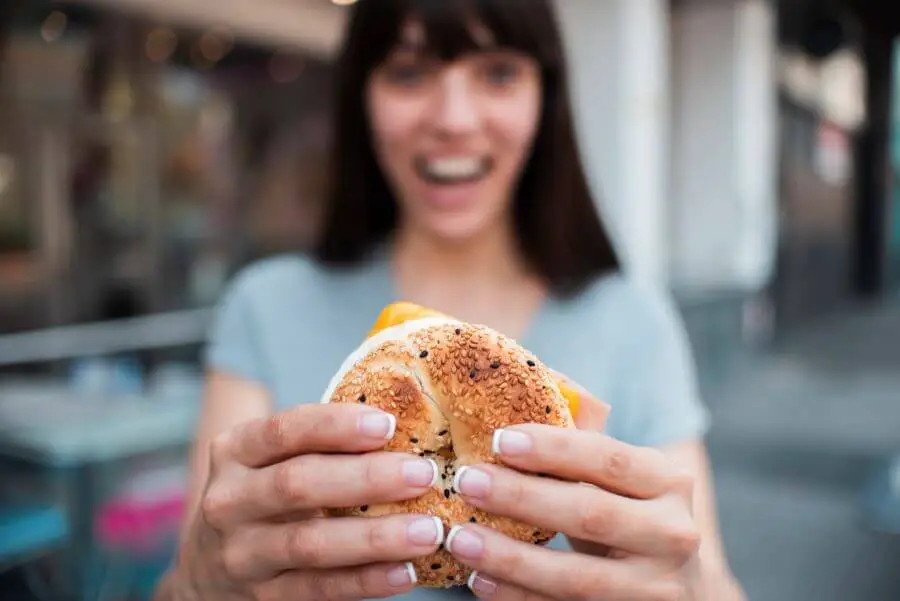Fast food has long been a source of comfort for many, and McDonald’s, one of the world’s largest fast-food chains, often stands out in this regard.
Despite the health debates surrounding fast food, why does a meal from McDonald’s make some people feel so good?

Here’s an in-depth look at eight potential reasons:
The Consistent Comfort of Familiarity
McDonald’s has established itself as a global brand with a consistent menu across its outlets worldwide. This consistency goes beyond just the food; it extends to the restaurant’s layout, service, and overall experience.
For many, visiting McDonald’s brings a sense of familiarity and predictability, which can be comforting in an ever-changing world.
The comfort in familiarity is deeply rooted in our psychology.
Humans are creatures of habit, and we find solace in routine and familiarity. The brain recognizes familiar situations as safe and non-threatening, inducing feelings of relaxation and contentment.
When you walk into a McDonald’s, no matter where in the world, you know what to expect, and this predictability can ignite a sense of joy and satisfaction.
Further, this familiarity extends to the taste of McDonald’s food. The unique flavor profile, the savory Big Mac or the sweet and soft Apple Pie, triggers your taste memory, leading to a comforting sense of familiarity.
The regularity and reliability of this experience can make McDonald’s a go-to comfort food for many.
The Science of ‘Feel-Good’ Food
Like that served in McDonald’s, fast food is often high in fat, sugar, and salt – all ingredients our brains are hardwired to enjoy.
From an evolutionary perspective, these nutrients were scarce yet vital for survival, so our brains evolved to reward us with pleasure when we consume them.
When you eat a McDonald’s meal, the high levels of these nutrients can trigger the release of dopamine, a neurotransmitter associated with pleasure and satisfaction.

This ‘reward’ response in the brain can create a noticeable lift in mood, similar to the ‘high’ experienced by runners or the relaxation following a yoga session.
Moreover, this brain-food connection goes deeper. Certain foods, like those high in sugar or fat, can stimulate the production of serotonin, a hormone that boosts mood and promotes well-being and happiness.
So, indulging in a McDonald’s meal might satisfy your hunger and improve your mood.
Affordability and Value for Money
The affordability of McDonald’s food could contribute to the positive feelings associated with eating there. Finding a satisfying and reasonably priced meal can bring relief and contentment to a society with daily economic stress.
Moreover, McDonald’s offers value meals and promotions that provide a complete meal – including a main item, side, and drink – at a lower price.
Getting more for less can stimulate a psychological response known as the ‘deal-prone consumer effect,’ where customers feel excitement and satisfaction from believing they have saved money or gotten a good deal.
This sense of getting a good deal can boost self-esteem and satisfaction. It’s a win-win situation – you get to enjoy a tasty meal while feeling savvy for saving money.
This, combined with the convenience and enjoyment of the food, can contribute to the overall positive dining experience at McDonald’s.
Positive Associations Through Effective Marketing
Marketing plays a significant role in shaping our perceptions of a brand, and McDonald’s is a master of this.
Through advertising campaigns, McDonald’s has successfully associated its brand with positive experiences – family time, celebrations, or a rewarding treat after a long day.
These positive associations can influence how we feel when we eat at McDonald’s. Every bite can bring back memories of happy times or remind us of the treat we believe we deserve, leading to an improved mood and overall well-being.
Additionally, McDonald’s marketing often includes fun elements like games, toys, and movie tie-ins, which can evoke joy and nostalgia. This clever marketing enhances the McDonald’s eating experience, making it about more than just the food.
The Social Experience
Eating is often a social event, and McDonald’s caters to this aspect brilliantly. The casual, family-friendly environment makes it a popular choice for group outings.
Sharing a meal with loved ones can foster a sense of connection, belonging, and happiness, enhancing the overall dining experience.
Moreover, shared food experiences play a crucial role in many cultures worldwide.
They can strengthen bonds, build new relationships, and offer comfort during difficult times. So, a meal at McDonald’s could symbolize much more than just food – it could represent community, friendship, and love.

Eating at McDonald’s can also be a break from the norm, an excuse to step out of the daily routine. This change of scenery, coupled with the enjoyment of food and company, can lead to a significant mood boost.
Convenience and Ease
In our increasingly busy lives, convenience is king. McDonald’s, with its quick service, easy accessibility, and the option for take-away or drive-thru, fits seamlessly into many people’s lifestyles.
This convenience can alleviate the stress of meal planning or cooking, contributing to the sense of relief and satisfaction derived from eating there.
The ease of getting a meal at McDonald’s – whether driving up to the window, ordering at the counter, or even using their app for home delivery – removes one potential stressor from your day.
This convenience, combined with the satisfying nature of the food, can lead to a positive emotional response.
The Joy of Variety and Novelty
Variety is the spice of life, and McDonald’s embraces this philosophy by regularly introducing new items and limited-time offers. The anticipation and excitement of trying something new can bring joy and break the monotony of daily life.
This constant innovation keeps the McDonald’s experience fresh and engaging, adding to its appeal.
Experiencing new foods can be exciting, triggering a sense of adventure and novelty. This, combined with the assurance that the quality will be up to McDonald’s standards, can make each new menu item a source of joy and anticipation.
The Role of Individual Food Preferences and Cravings
Lastly, individual food preferences and cravings play a significant role in the enjoyment derived from eating at McDonald’s.
For someone who loves burgers or fries, a McDonald’s meal might satisfy their cravings more than any other food, leading to happiness and contentment.
Each person has unique food preferences and cravings, often shaped by cultural, familial, and personal influences. When these specific cravings are satisfied, it can lead to intense pleasure and satisfaction.
If McDonald’s happens to hit the spot for your particular cravings – be it for a juicy burger, crispy fries, or a creamy McFlurry – the resulting happiness can be a powerful mood booster.
In conclusion, the reasons why McDonald’s can make some people feel better are complex and multifaceted, intertwining physiological, psychological, and socio-cultural factors.
However, while enjoying McDonald’s or any other fast food, practicing moderation and balancing it with a nutritious diet is essential to maintain overall health.





